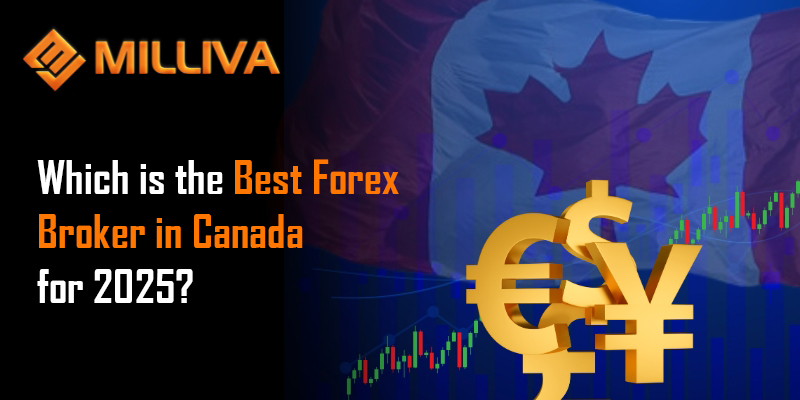Myths of Forex Trading

![]()
Quickly Become Rich
Myths of Forex Trading : The foreign currency retail sector has grown substantially as a result of advertising. This has attracted a large number of people who are looking to make quick money (or with little effort). Unfortunately, this is quite unusual.
Trading requires patience, and there is no guarantee of a positive outcome. Traders don’t earn profit and then go; instead they make trade after deal. Even if there are time gaps between them. Trading, then, necessitates constancy rather than a gambling-like, throw-it-all-at-a-couple-of-trades approach.
Only Short-Term Traders Should Trade Forex
Short-term forex trading has become popular due to high leverage, but this is not the only method to do it. Fundamental reasons determine long-term currency patterns, and these long-term trends can be trade. Long-term traders are less concerned with daily gyrations and focus on the longer trend.
Some traders may benefit from using longer-term time frame. Since it reduces the amount of spreads paid and traders are more likely to avoid short-term impulsive transactions.
Currencies used to diversify or hedge buy-and-hold investment portfolios.
The Market Manipulate
Losing traders sometimes blame their losses on a rigged market or a dishonest broker. While it is a common misconception, forex is not a con. Sure, fraud happens, but it doesn’t indicate the market isn’t legitimate.
The FX market is the world’s largest, with hundreds of thousands of transactions and perhaps thousands of inputs every day. As a result if someone adopts a non-businesslike attitude to trading, one of the other knowledgeable players will most likely notice; this is the nature of all markets.
Correct Yourself Every Time.
Losses happen, and seeking to discover a technique that is perfect every time can either keep a trader on the sidelines eternally or send them into the market with an over-optimized plan that will not react to changing conditions. Accepting that losses will occur and devising a technique. That provides a little advantage in the market circumstances traded is sufficient to generate good returns.
It’s Possible to Make Money
People salivate with ideas of fast money when they witness a currency rise following a high-impact news announcement like the U.S. Nonfarm Payrolls (NFP) Report. Unfortunately, trading news events in real time may be incredibly difficult.
What the charts don’t indicate is that there is often little liquidity for most of the movement that occurs in the first few seconds following the announcement, which means traders can’t get into a profitable trade once it begins or get out of a losing trade once it has begun.
Although a trade set up before announcement made. Execution necessitates a thorough examination of the facts supplied in order to evaluate the anticipated impact on the market.
Because other traders are evaluating the same indications, this analysis completed fairly instantaneously. As a result, trading news necessitates a methodical approach, and instant money rarely discovered.
Have a Larger Number of Deals.
While it would be good to believe that if a trader earns money once a day, he or she may make ten times as much trading ten times a day, this is rarely the case. Most traders will benefit from trading less and concentrating on a few currency pairings that they are familiar with.
Unless a trader is experienced and concentrates on scalping tactics, the bulk of traders will gain by being patient, concentrating on something they are familiar with, and waiting for the greatest opportunities—few as they may be.

Ability to Predict the Market
Trying to forecast the future might be a trader’s demise, despite the fact that this is what most amateurs try to do. Predicting may make us blind because it creates a psychological bias toward a stance and interferes with our ability to make reasonable decisions. Traders must be agile, follow a strategy and replace losing deals with successful trades.
The deals that are made should be dictated by the market, which is always shifting. If a forecast is made, the trader should watch the currency’s movement to see if the prognosis is correct.
The more complicated the strategy, the better. The Better Traders frequently start with a modest approach that yields a tiny profit. They then anticipate that by tweaking their method and adding a few more variables, they will be able to improve their profits. Normally, this is not the case.
Rather than focusing on simple factors like price movement (which is the most important factor in generating a profit) and whether the market is trending or range, the trader tries to pinpoint specific reversal points and place additional transactions.
Even the greatest traders only win slightly more than they lose in order to make a profit in trading. As a result, if a method is profitable, remain with it and don’t modify it; instead, concentrate on money management.
Money Management Entails.
Once a trader has gained some expertise in producing consistent profits, money management (MM) is likely the most essential component in determining success. MM is more than just setting a stop order on a transaction; it also refers to the amount of the entire account that will be risked on each trade (generally, less than 1 percent ). It will also consider:
Transactions You Have to Open at Once?
Is it necessary to hedge several holdings if they are open, or may they be strongly correlated?
A trader may take their trading to the next level by concentrating on money management. Even with the strongest strategy, ignoring money management spells doom.
Do What Others Doing.
There’s always plenty of advice on how to trade, what to trade, and when to trade floating around. However, the trader’s money is on the line, and he or she will be the lone beneficiary of earnings and losses. As a result, traders should make every effort to improve their own talents and reach their own judgements rather than depending solely on the advise of others.
Professionals with a lot of expertise may help rookie (or other experienced) traders a lot, but all information should be vetted and evaluated before acting on it. Because no one else has a vested stake in the account’s prosperity except the trader, the trader should offer the most input.
Visit us on: www.milliva.com





